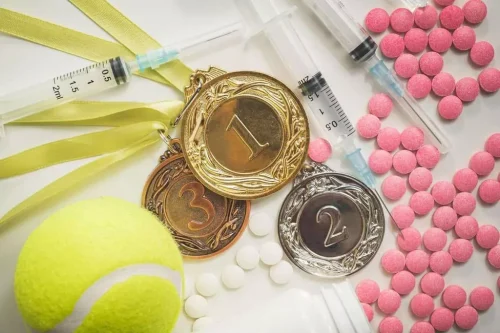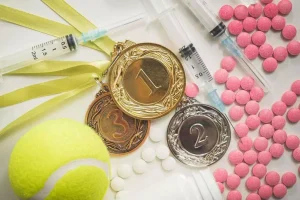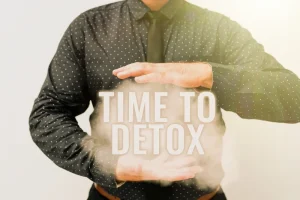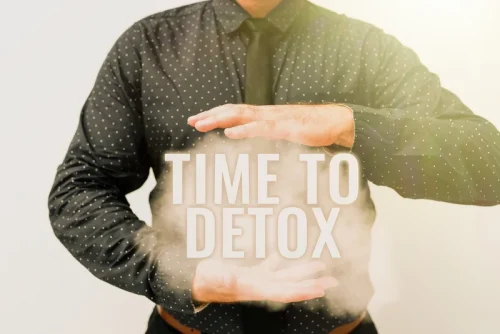
For many people with a substance use disorder, it’s simply a matter of never having learned the appropriate way to manage anger. Talk to your therapist, other healthcare provider, or sponsor about how to deal with your anger in ways that won’t cause you to harm yourself or others or turn to alcohol or drugs. Detailed descriptions of analytic methods and statistical results have been reported in Polcin, Korcha, Bond, & Galloway (2010), Polcin Korcha, Bond, & Galloway (in press), and Polcin Korcha, Bond, Galloway & Lapp (in press). Our purpose here is to summarize the most salient and relevant findings for SLHs as a community based recovery option. We then expand on the findings by considering potential implications of SLHs for treatment and criminal justice systems.

Identify Your Triggers
Physical activity might also give you better learning, thinking, and judgment skills, which can help you navigate your journey to sobriety. It also helps your brain form new nerve connections, which makes the process of getting sober easier. Reactions of focus group participants to our findings highlighted a number of points. Several participants thought perceived costs of sobriety were more prevalent in early recovery. It’s way too simplistic to say that bad choices lead to addictions, and the belief can lead to a lack of compassion for people suffering from them. Like anyone else with a life-threatening illness, substance use disorders and other addictions need treatment, and people suffering from them need a lot of support to recover.
Think About the Health Risks of Drug Use
While the process may take several years, the outcome is a happier, healthier life where you have the freedom to fulfill your full potential. As a result, overcoming guilt and negative self-talk is vital. Some people may feel so “broken” that they almost feel they can no longer experience joy and confidence, or have healthy relationships again. If you’re ready to make a positive change, here’s what you may want to know about the recovery process. This is a treatment that first prevents someone from using their substance of choice and then provides information about the harm of using. These milestones can help you break down the daunting task of long-term sobriety into manageable steps.
- Recovery from AUD is marked by stages of abstinence, withdrawal, repair, and growth.
- Studies on high school service learning programs, for example, have shown that teens who participate in service learning do better in school, are less involved in criminal behavior, and report feeling happier.
- A significant strength of the Options houses was that residents were able to maintain low alcohol and drug severity at 12-month follow up.
- Ways that residents reached out to fellow peers in distress were felt to facilitate motivation at individual and household levels.
- Words like sobriety and addiction tend to conjure up extreme images, like people slumped in dark alleys or staggering around yelling and throwing bottles.
Motivation to maintain sobriety among residents of sober living recovery homes

If it seems like some people can’t catch a break when it comes to breaking free of their addiction, according to science, many people have their genetics to blame. This past weekend, we woke up to the devastating news that beloved “Friends” actor Matthew Perry, who had long struggled with addiction, was found dead in the bathroom of his California home. Police quickly assured the public that there were no signs of foul play while simultaneously assuring the public that no official cause of death would be announced for quite some time. Volunteering not only celebrates your progress but also reinforces the positive impact of your sobriety. Consider taking a relaxing bath, practicing yoga or meditation, or spending a day at the beach or in nature.
- The more tools you have for identifying triggers, coping with stress, and managing your new sober life, the easier you’ll prevent relapse.
- For instance, children of alcoholics are at much higher risk of becoming alcoholics, even if they don’t grow up around their parents.
- Another participant pointed out that the resident who developed that meeting received recognition in the household for his efforts, which furthered his commitment to the house as well as his individual recovery.
- As you build these habits into your routine, you’ll find it easier to manage stress and cravings, supporting your long-term sobriety journey.
- Knowing relapse signs can help you recognize your risk of relapse, and they may include a return to addictive thinking patterns and compulsive behaviors.
- In addition to being able to recognize them, it’s important to know when to seek help.
- Since withdrawal symptoms tend to ebb and flow, you may be tempted to feel like you’re not making progress ― even though in reality, you’ve come a long way.
- There is a serious need for research on the specific types of peer interactions that best facilitate motivation for different individuals.
- Some people who move from a controlled and protective setting find themselves awash in the environmental cues that lead to their drinking.
Because a large number do not have a stable living environment that supports abstinence from alcohol and drugs, ORS developed SLHs where clients can live while they attend the outpatient program. The houses are different from freestanding SLHs, such as those at CSTL, because all residents must be involved in the outpatient program. Most residents enter the houses after residing in a short term homeless shelter located near the program. At admission, nearly all residents are eligible for some type of government assistance (e.g., general assistance or social security disability) and use those funds to pay SLH fees.
Set Short-term and Long-term Goals
Getting enough sleep, exercise, and water and fueling our bodies with healthy foods can help us feel good both physically and mentally. As time passes, it can be easy to forget our beginning struggles and the reasons we had for wanting to get sober. We might become complacent if we feel we haven’t made progress. By keeping a journal, blog, or video-blog, you can more easily see the progress and growth of your journey, making staying motivated an easier task. You might even have a desire to share your writings or videos with others who are struggling (—which would be service work!).

Why Aren’t You Drinking? 10 Confident Responses to This Common Question
Data of two 1-hour focus groups were audiotaped and transcribed. Two raters independently hand coded text for dominant themes within specific content areas queried tips to stay sober during the interview. The two coders then discussed the themes each area generated and discrepancies were resolved through discussion.

Six Ways to Boost Your “Habits of Helping”
However, you should know that sobriety does get easier with time. While it can be challenging to resist temptation, remembering why you want to stay sober can give you strength for the journey ahead. Many factors can trigger relapse among people in recovery, including cravings, memories and stress. Purchasing drugs from a dealer or alcohol from a nearby store can become a financial burden over time. Spending money on these substances could cut into paying for rent or bills. Abuse of tobacco, alcohol, illicit drugs and prescription opioids costs the United States more than $740 billion each year in crime, health care and lost productivity, according to the National Institute on Drug Abuse.
What Makes Someone Prone to Addiction?
Instead, focus on things, experiences, and activities that will support your new, healthy lifestyle. You may also experience what is commonly called sobriety fatigue, which refers to the overall exhaustion that may occur as a result of the emotional and physical stress of staying sober. So, it’s extra helpful to have a support network available to you when you need it. To lead a healthy life, free of alcohol and drug abuse, it’s necessary to change habits and regulate unconscious emotions that both drive and support abuse, in short, to develop the capacity within to create value, meaning, and purpose.

0 Comments